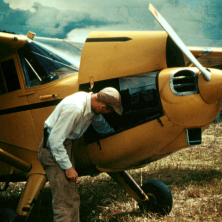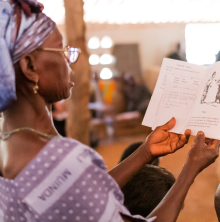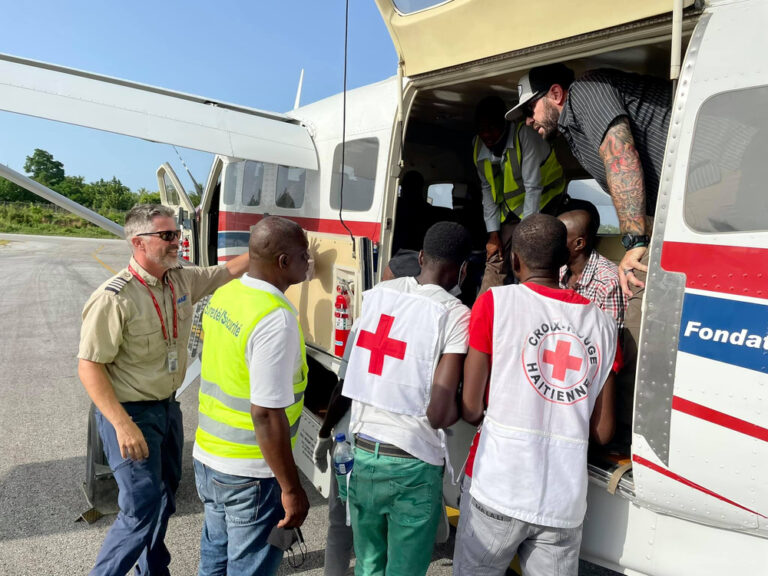How your partnership helps Bible translation in coastal Mozambique
By Natalie Holsten
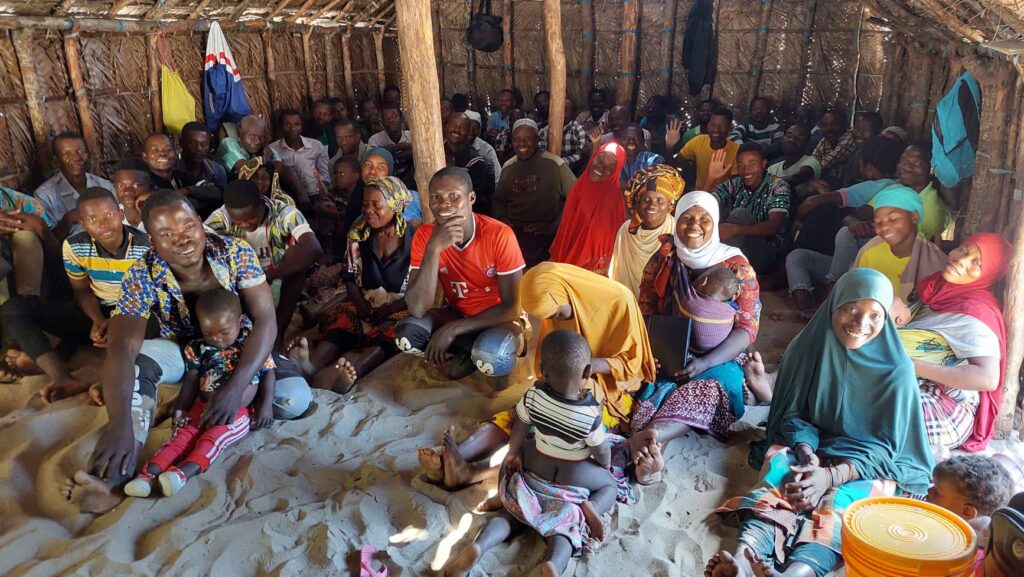
Fifteen years ago, Pastor V in coastal Mozambique held up a freshly printed book. The slim volume contained Genesis, Jonah, Luke, and 1 Timothy, translated into the EKoti language.
“Our book has four books,” he exclaimed to a group of believers. “But the full Bible has 66 books. We want them all!”
The Koti believers are moving closer to their goal of having the full Bible in their language, EKoti. It’s a language spoken by 100,000 that borrows heavily from Swahili and Arabic. “Through and through it’s an African language,” said translation consultant Sebastian Floor. “It’s very difficult to learn but sounds very beautiful. It has poetry.”
Sebastian recalled how a linguist couple began studying this poetic language in the mid-1990s and wrote a grammar to begin teaching literacy classes, which continue to this day.
“The language is very much alive. The children speak it, so it’s not a dying language,” Sebastian said.
While linguists labored to master the language and reduce it to written form, short-term evangelistic teams from Japan began visiting the Koti people, and a new group of believers was baptized in 2001.
What happened was nothing short of miraculous. Since that first group of believers, thousands more have put their faith in Jesus and been baptized. Believers, who called themselves ‘Tarikhi ya Haakhi’ (Way of Truth), were transformed by the truth of the gospel, with fewer marital problems and less violence.
“No one could ever imagine what God has done among our people,” one Koti believer said.
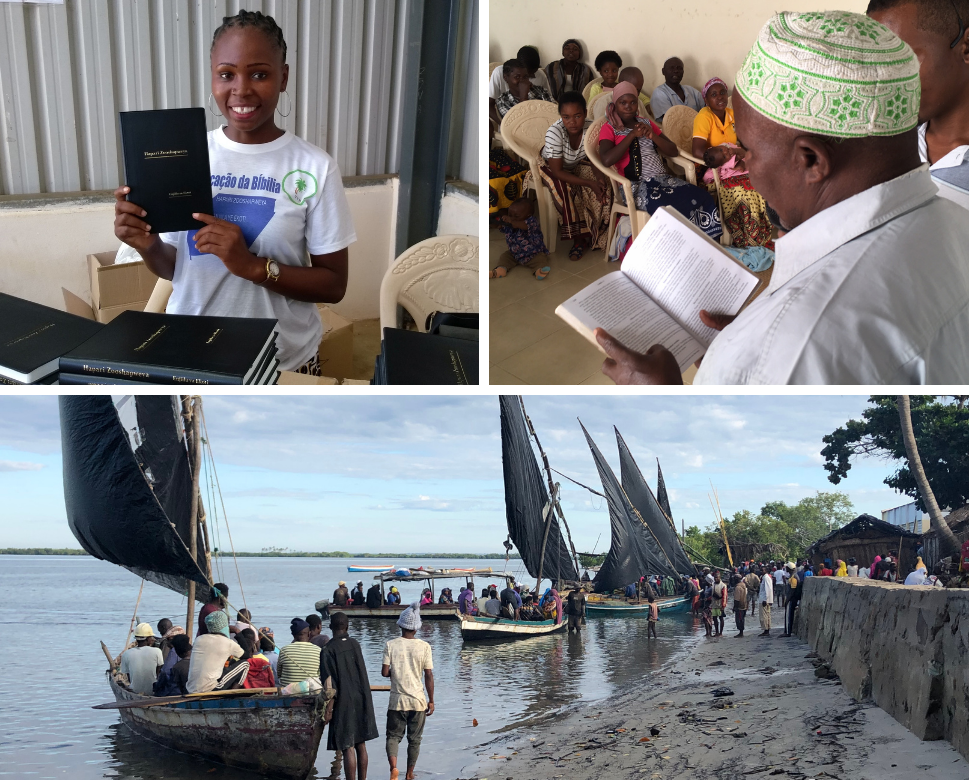
As the Koti church grew, the linguistic team translated some parables of Jesus from Luke, then focused on the book of Jonah, which seemed appropriate for a seafaring people like the Koti.
After that, portions of scripture were translated for specific needs of the growing church. To understand who Jesus is, the gospel of Luke was completed. Genesis was translated to help correct a faulty belief about separation from God. The book of 1 Timothy was translated when church leaders needed guidance. A selection of Psalms was translated to help give structure for worship.
Eventually, linguists—including many local Koti translators—focused on the New Testament, which was completed and dedicated in 2021, a huge step towards Pastor V’s desire for the entire Bible.
In 2022, two translation coordinators flew into Koti Land on MAF (known in Mozambique as Ambassador Aviation) to kickstart the Old Testament translation project.
MAF pilot Ryan Koher described their arrival. “The coordinators were joyfully welcomed by members of the local church, which reflects their love for God’s Word and the eagerness and excitement for the Old Testament.”
Later in the fall, Ryan flew Sebastian in to help with the translation for Psalm 117, the shortest psalm.
Sebastian and other consultants make frequent trips into Koti Land, where they are currently working on Psalms in a workshop setting. The consultants help the local translators fully understand and internalize a psalm through oral translation and creative songs, with the work concluding in a written transcription before moving on to the next psalm.
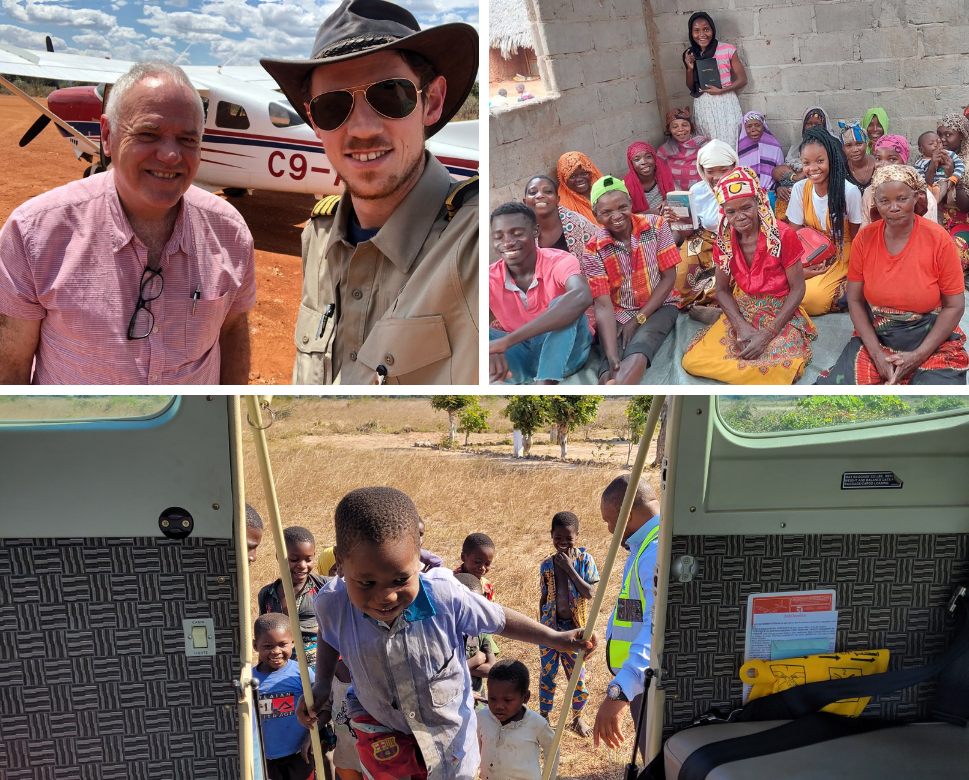
The consultant teams prefer to use MAF to travel into the area. It’s a 45-minute flight to reach the Koti from Nampula, where MAF’s base of operations is located. Last September, a cyclone washed out a major bridge on the one road from Nampula to Koti Land, and torrential rains continue to wreak havoc on road conditions.
“Doing a trip on MAF saves days. It’s an efficient way to travel. When I was in regional administration, I didn’t have time to spend weeks in one country. I have a trip of four or five days to visit three or four projects,” Sebastian said. “So MAF took me from one project to another. It saved me a lot of travel headache.”
Today there are 20,000 believers in the Koti church. “The New Testament is used passionately,” says church planter Graeme, “and they have sent church planting teams to take the gospel to an unreached people group further to the north.”
Safely transporting Bible translators is just one of the ways MAF is helping isolated people in Mozambique be changed by the love of Christ.
“It is a privilege for me to play a small role in making the Word of God accessible to thousands of people,” Ryan says. “I see partnering with translators as one of the most important ways we can minister to the people of Mozambique.
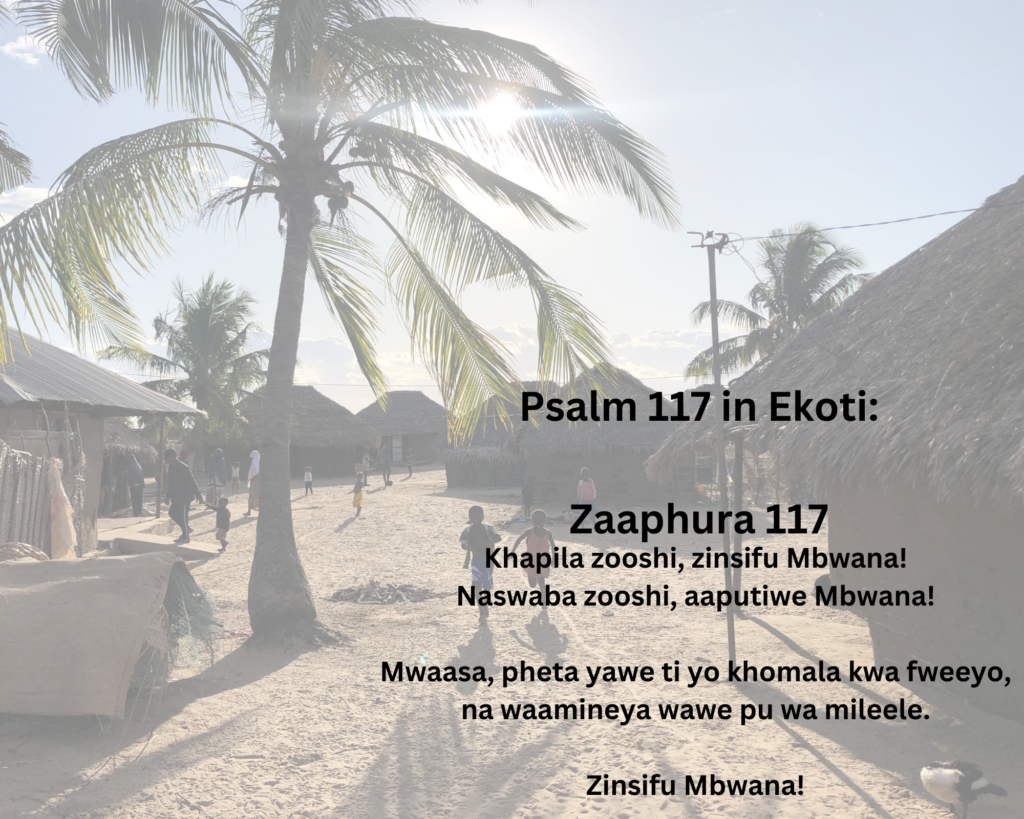
This story ran in the August (Vol. 3) 2023 issue of FlightWatch. Read the full issue here:
